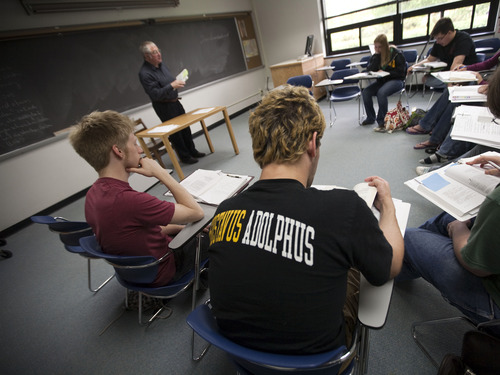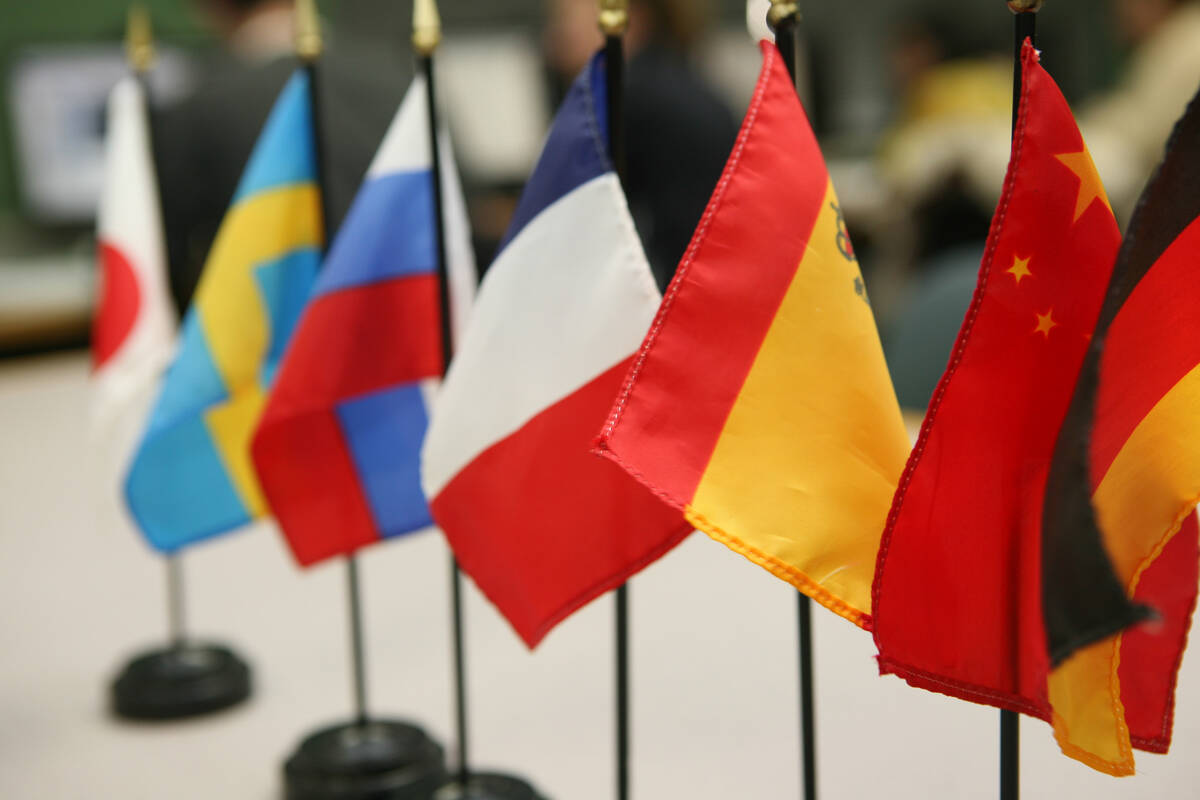About the DepartmentDepartment of Modern Languages, Literatures, and Cultures

Introduction
The language of a people is the most ubiquitous component of its culture. We view culture in the broad, sociological sense of the word (not simply in the narrow sense of Literatures and the fine arts) and attempt, at all levels, to develop in our students an understanding of as many aspects of the foreign culture and civilization as possible, in conjunction with training in listening comprehension, speaking, reading, and writing. This emphasis on proficiency in the skills is carried into the Literatures courses, which are conducted in the target language to ensure that graduates will be well prepared whatever their career decision may be.
Language Course Requirements Course Catalog Faculty and Staff
Goals
The Department of Modern Languages, Literatures and Cultures sets goals that reflect the commonalties as well as the divergences between the different language sections. The goals of the department are consonant with its own mission statement, and can be identified within the College mission statement, since the department plays a vital role in the fulfillment of the college's mission of education.
Vision
The Gustavus Adolphus College Department of Modern Languages, Literatures and Cultures (MLC) seeks to inculcate in students, at beginning and advanced levels, the ability to use language to both appreciate other cultures and to negotiate the complexities of an increasingly intercultural world. The department's vision places particular emphasis on the teaching of culture in all its forms: seeking to instill the idea that while the understanding of language has practical benefits, the study of literary and cultural traditions in a broad context will bring further rewards. The tradition of social justice is an important one, and we incorporate it into our courses, whenever appropriate, at home and abroad. As a Modern Languages department in a state that is rapidly becoming more international, both culturally and economically, the Department aims to develop citizens with a sophisticated understanding of intercultural communication.
Philosophy
The MLLC Department's philosophy is to help students prepare for an interconnected world by promoting intercultural competence through language learning, Literatures study, and cultural education. We use diverse teaching methods, including technology, study abroad, and service learning, with the goal of emphasizing the importance of language in the study of culture and lifelong learning.
Since the Department is officially called the Department of Modern Languages, Literatures, and Cultures the definition of these domains and their relationships define the scope and content of our discipline.
We live in a world in which nations are increasingly interdependent, and in a country that is becoming increasingly diverse linguistically and culturally. The Department is committed to helping its students to prepare for this interconnected world by fostering the development of intercultural competence through the study of languages, Literatures and cultures of the world.
Learning a new language gives us a distinct point of view from which we can evaluate and understand our own language, as we acquire linguistic and cultural competence in that language. Language learning is the discovery of a new world and a new self. Therefore language study has intrinsic value in and of itself.
Literatures has traditionally been the main material and vehicle for language learning. Indeed, Literatures is an ideal medium for exploring the possibilities of language. Through the study of Literatures, speakers and readers new to the language discover narrative structure, character development, and literary forms, conventions and values.
The study of Literatures involves analyzing literary texts, film and digitally produced materials and learning to appreciate their formal structures and aesthetic elements. The skills acquired by analyzing and understanding these works give students greater sophistication and add to their critical thinking. Moreover, the discipline and work required in learning to appreciate literary works enriches students’ lives beyond their academic career.
Although we affirm the centrality of language learning in one’s development of intercultural competence, we also recognize the importance of culture education. In this context, we define culture in broad terms to include, for example, rhetorical traditions, nonverbal communication styles, and cultural values that guide such communicative behavior, We believe that culture should be taught in both “culture-specific” courses within each language section and “culture-general courses that cut across language sections Just as learning a new language allows us to understand and evaluate our own language, so too does the understanding of another culture enable us to define our own culture.
As a department we do not advocate one single method of teaching. Our pedagogical practices vary according to the given language, the instructor's pedagogical training, preferences, course material, and the needs of students. The Department is thus committed to incorporating diverse approaches in our teaching. Such commitment is also reflected in our emphasis on the use of technology, study abroad and service learning. Such diversity of approaches, however, is grounded in the Department’s central goal: to instill in our students the basic principle that language is essential to the study of culture, intellectual inquiry, and life-long learning.
Statement on Equity
The Department of Modern Languages, Literatures, and Cultures at Gustavus Adolphus Colleges publicly expresses its commitment to combat those systemic inequalities and to support those at a higher risk of being exposed to such precarities. We, as members of an academic community, recognize that we can make this statement from a place of privilege. Our goal is to positively impact historically disenfranchised individuals and communities. We further recognize that race particularly exacerbates vulnerabilities associated with different forms of minority status (citizenship status, sexual orientation, religious belief, gender identity, disability, and different ethnic backgrounds). We understand the murder of George Floyd at the hands of Minneapolis police in the summer of 2020 as an egregious event that prompts us to recognize the way the system targets segments of the population, our fellow citizens, in a way that denies them of the right to live. As George Floyd struggledto breathe, as disadvantaged BIPOC communities struggle to survive the health and financial impacts of COVID19, we should all strive to combat practices that oppress our fellow humans within the United States and across the globe.
The Department of Modern Languages, Literatures, and Cultures proposes the following:
Teaching: We commit to make our teaching as inclusive as possible. This entails both looking into our pedagogy, selection of materials, and assessment tools.
Advising: We commit to making sure every one of our students feels welcomed, and, furthermore, to valuing the contributions of our diverse student body to our community.
Research: Our academic inquiry is rooted in building intercultural understanding, so that as a society we develop a better understanding of justice. We commit to be active voices on this topic both in our campus and in our fields.
Service: We encourage our administration to continue to develop initiatives to attain the goal of being a more diverse and just community, where people of color view themselves as integral to the community. We commit our time and ideas to contributing with committees and with programming that is in line with this goal.
Community engagement/outreach: We encourage the administration to enhance the role of community engagement as a fundamental tool to embody the way in which justice can be achieved through academic and extracurricular activities.
Curricular development: We commit to continue developing our curricula where our students can find ways to identify and analyze the relationship between power and diversity, as well as to consolidate that knowledge through arguments and to create alternatives for the future.
